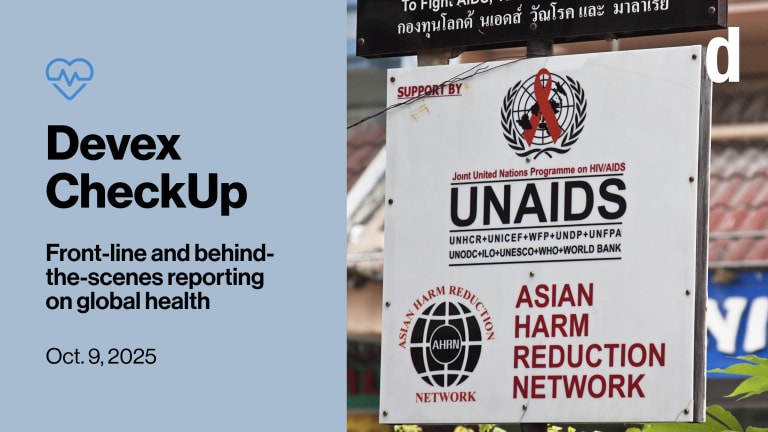
The world is 20 cases away from making polio history. So far this year, only 20 people have been diagnosed with polio, contracted in a few endemic areas of Afghanistan and Pakistan. Officials of both countries say they’re expecting the world’s final polio case to come in 2019 or 2020. This will be an incredible success in the history of modern medicine. We should all feel very proud.
For as long as the world uses the oral polio vaccine, or OPV, there will be some cases of vaccine-derived polio too. But OPV is like the rocket that propels a spaceship — once the ship breaks free of gravity, the rocket must be discarded; once polio is gone, OPV will have done its job.
When the world is polio-free, we must face a foe as powerful as the disease itself: our own complacency. We all need to continue to commit to immunizing children against polio for several decades. If momentum slows, there are several routes through which the disease could rebound and again traumatize the world. There are a few people who have no symptoms, yet, after receiving OPV, may carry polio for many years and spread it. And sadly, it is easy today for a terrorist to make a virulent poliovirus from scratch.
“When the world is polio-free, we must face a foe as powerful as the disease itself: our own complacency.”
— David Loew, head, Sanofi PasteurAn inactivated vaccine
The good news is that there is a reliable way to protect against the deaths and paralysis that polio could otherwise cause in future generations: A vaccine without any live virus can be made part of the series of routine injections that every child already receives.
An inactivated polio vaccine, or IPV, was designed by Dr. Jonas Salk in the 1950s. There are now at least three producers and it is reliably available and affordable. IPV has been protecting children in Europe and North America for decades. The vaccine is remarkably safe and effective.
The global plan is to stop using OPV after polio eradication and use only IPV to prevent re-emergence — provided there is enough IPV. So far, Sanofi Pasteur has supplied close to 80 percent of the IPV that the United Nations Children’s Fund procures and distributes to developing countries for polio eradication.
There could be shortages as soon as 2023, however, the year one of our existing manufacturing plants will come to the end of its natural lifespan. We currently have no plans to replace the plant, because there is no indication that donors and global purchasing groups would use the vaccines that an expensive new plant would produce.
There is a global polio procurement plan but, instead of procuring from known producers with a track record of reliable vaccine production, it depends heavily on new producers introducing new types of IPV vaccines made using new technologies that have not yet been proven.
When so much is new in complex biological and manufacturing processes, there tend to be unexpected challenges.
In working to scale up production quickly to meet urgent procurement requests in 2014, our company fell short of initial manufacturing goals. All IPV manufacturers have faced such challenges. Even for experienced vaccine manufacturers with vast technical resources, producing IPV is challenging.
“I am sounding the alarm now because it is already late for current IPV manufacturers to commission and plan new facilities and we want decision-makers to be clear about this risk.”
—Sounding the alarm
Sanofi Pasteur has been part of the polio eradication program since the beginning but, should there be any future delays or failures, we are unlikely to have the capacity to supply the whole world. That is especially true of developing countries, where most of the world’s children live. I am sounding the alarm now because it is already late for current IPV manufacturers to commission and plan new facilities and we want decision-makers to be clear about this risk.
I do support the desire to rely on more manufacturers to produce IPV. Diversification must, though, be planned and — to use the jargon — “de-risked.” The costs of failure are too high: Professor Kimberly Thompson has estimated that the global economy will get a $50 billion boost from eradication.
The lesson from other industries with tight deadlines and high investment is that donors providing funding for polio eradication should make longer-term funding commitments. And procurement agencies should develop longer-term relationships with producers, instead of the current practice of issuing year-to-year tenders that are then awarded to the lowest-cost bidder.
The historic success of ending polio is close and we should make sure that everything is in place to get there.
The Global Polio Eradication Initiative has choreographed an extraordinarily complex effort involving every country on the planet in a series of intricate, synchronized steps that have brought us to the brink of eradication. Rotary International alone has raised over $1.4 billion and knocked on the doors of policymakers on every continent to mobilize health systems. At a press conference on Monday, we saw again the faces of brave polio workers who are risking their lives to make sure those 20 polio cases are among the very last.
As a vaccine company, we have a social contract with the global community. We are proud to have played our part in the plan to make this only the second human disease in history, after smallpox, to be eradicated completely.
We want to continue to stand with global health authorities, donors, national governments, the World Health Organization and civil society to make sure that polio never again destroys the future of any child.
Search for articles
Most Read
- 1
- 2
- 3
- 4
- 5








